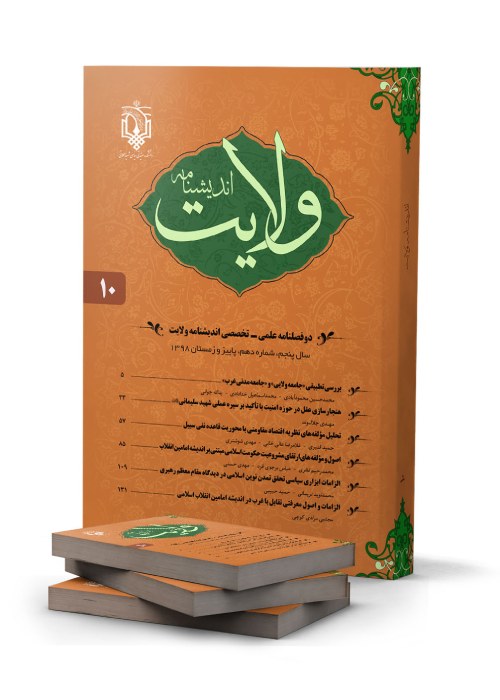Methods of Controlling and Supervising the Performance of Agents in Alavi Management
Every governmental system - to find peoples’ satisfaction, achieve efficiency and survive - stands in the need of righteous, expert and committed managers. This requires strengthening faith-related foundations and religious beliefs in managers which brings about continuous self-control and self-supervision in them and, in turn, helps them to hold these qualifications. This can also serve as necessary and supplementary project in supervising and controlling those governmental agents and power-owners that are exposed to deviation. Also, securing the society and government requires an intelligent center for collecting, analyzing and processing the received news and then changing them into useful information on the basis of which serious decisions are made. In Alavi’s doctrine, the government is goal-oriented and toward the elevation of society, development and deepening spirituality and training godly human beings. Therefore, occasional and undetermined but systematic control and intelligent supervision of agents who have critical role in public cultural engineering is strongly emphasized. In this logic, pious socialization starts from the circle of political and managerial elites in a targeted manner and then flows into the society. Recruiting spies and establishing intelligent networks and information look-over for inspecting governmental domains and then making decision on the basis of trusted information is a course of action that can be derived from the managerial policy of Imam Ali (a). The current research has relied on commandments and managerial behavior of Imam Ali to delve into continuous supervision and control of managers as an imitating and normalizing culture.


